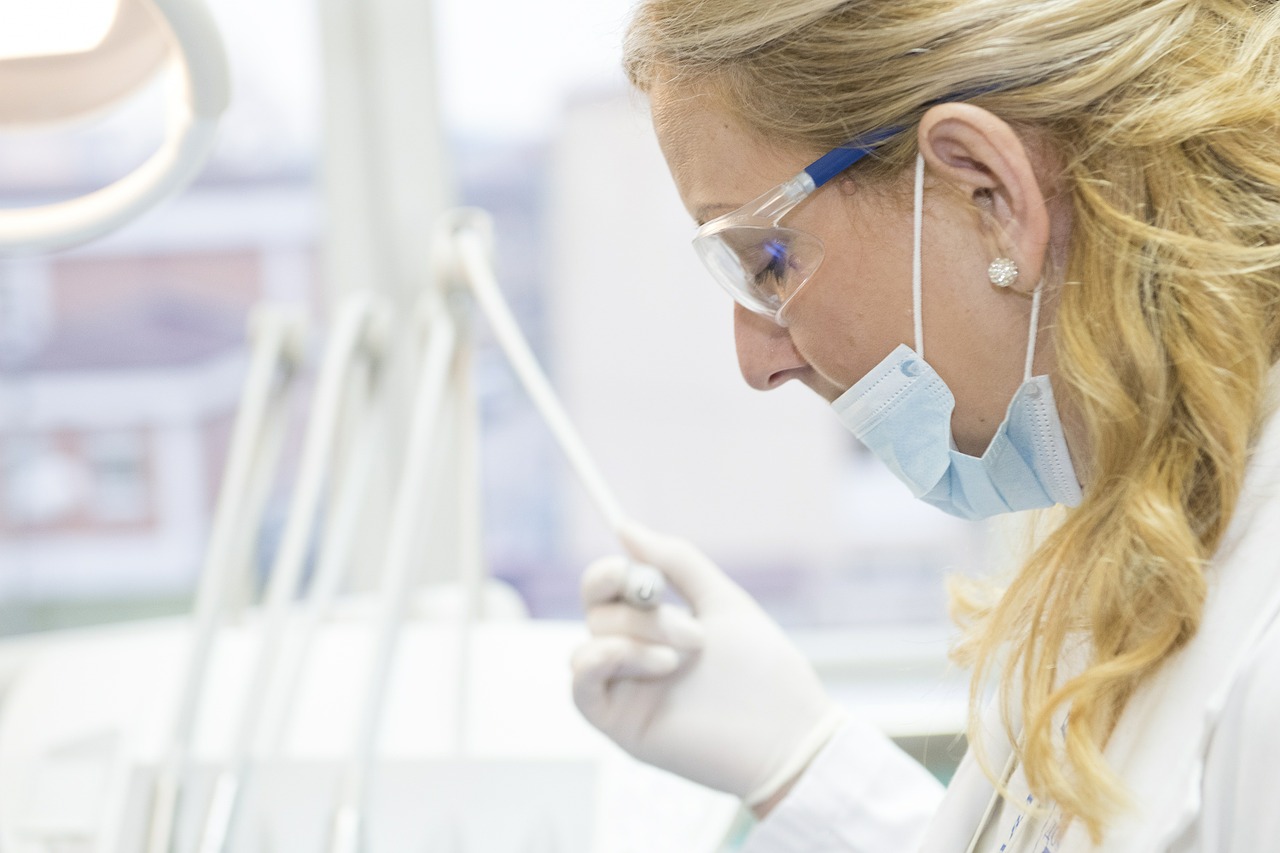Medicine Courses in the UK
Introduction to Medicine
Medicine is one of the most competitive courses in the UK and every year thousands of international students are accepted into medical school. If your grades are of the highest standard, and if you can prove that you have set your heart on studying and working in the medical field, then applying to read Medicine in the UK is for you. 3 As at A-level, including chemistry or biology, an IB score of 38 points or higher (predicted score) and an IELTS score of 7.0 is the academic standard required for undergraduate Medicine.
A strong first degree and a successful career record are required for graduate Medicine and work experience of one day a week for six months in a hospital, care home, hospice or other caring environment is the sort of evidence of intent the medical schools will be expecting and look for. Understanding of the National Health Service (NHS) and how it works is also crucial for international applicants.
The entry standards for any medical school are strict and exacting. Interviews for admission can be tough and students should expect questioning on motivation, previous work, personal interests, as well as being able to produce evidence of all previous achievements, including relevant work experience. A number of medical schools will expect completion of the clinical aptitude test, UCAT (UKCAT) and/or Biomedical Admissions Test (BMAT).
Medicine Entry Requirements
Undergraduate: If you decide you want to study medicine, you will need to enrol at a medical school, which is often part of a university, but will have strong links to local hospital and medical practises. To initially study at undergraduate level, students will need AAA grades, with ether Chemistry or Biology a requirement. An IB Diploma student must have a predicted score of 38 points or higher (on 42 and not 45), with Biology and Chemistry as HL subjects.
For international students wishing to study Medicine at undergraduate level, an IELTS score of no less than 6.5 across all four categories – reading, writing, speaking and listening – with an overall 7.0 score generally required at most universities.
If you need to improve your IELTS score, why not join our IELTS coaching? A range of IELTS study options are available to suit your needs.
Foundation: Once undergraduate study of two-years has been completed, medical students will then move on to Foundation training, lasting another two-years. This brings together medical school graduates, other postgraduates and various health care providers. Once completed, you will move into your specialist training path.
Speciality Training: Once you have completed four-years of study, now the serious work begins! The entry process once you have decided on which area you wish to specialise in is extremely competitive, so plenty of hard work is needed to ensure you can secure a place in the area you wish to focus on. Training here can last for anything up to seven years, and upon completion you will be awarded a Certificate of Completion Training (CCT).
UK Clinical Aptitude Test
The UK Clinical Aptitude Test (UKCAT) is part of the selection process of some UK medical and dental schools. It is an online test designed to test cognitive abilities, attitudes, critical thinking, and logical reasoning. There are four reasoning tests and a situational judgement test.
- Verbal Reasoning: Assesses ability to think logically about written information and arrive at a reasoned conclusion: 21 minutes, with 11 passages to read and 44 questions
- Quantitative reasoning: Assesses ability to solve numerical problems: 24 minutes, 9 tables, charts, graphs etc. as information and 36 questions
- Abstract reasoning: Assesses ability to infer relationships from information by convergent and divergent thinking: 13 minutes and 55 questions
- Decision Analysis: Assesses ability to deal with various forms of information to infer relationships, make informed judgements, and decide on an appropriate response: 32 minutes, 1 scenario full of information and 28 questions (basic calculator provided)
- Situational Judgement: Measures your responses in situations, and your grasp of medical ethics: 27 minutes and 67 questions on 20 scenarios.
The UKCAT test is taken at your local test centre, with each subtest in a multiple choice format. Past papers are not available but there are specimen questions on the UCAT website.
BioMedical Admission Test
The BioMedical Admissions Test (BMAT) is an admissions test for applicants to Medicine, Biomedical Science and Dentistry courses at certain universities.
BMAT is a 2-hour, pen-and-paper test divided into three sections. You can see what is in each section and also a list of courses that require BMAT below.
The BMAT test format includes the following;
- Section 1: Aptitude and Skills: This section tests the generic skills in problem solving, understanding arguments, and data analysis and inference. It consists of 35 multiple choice questions to be answered in 60 minutes
- Section 2: Scientific Knowledge and Applications: This section tests the ability to apply scientific knowledge typically covered in school Science and Mathematics by the age of 16 (for example, GCSE in the UK and IGCSE internationally). It consists of 27 multiple-choice questions to be answered in 30 minutes
- Section 3: Writing Task: This section tests the ability to select, develop and organise ideas, and to communicate them in writing, concisely and effectively. It consists of one writing task from a choice of three questions to be finished in 30 minutes
For more detailed information about the format of BMAT, see the BMAT test specification
Which UK Universities accepted the UCAT (UKCAT)?
The UKCAT must be taken by applicants at the following universities:
- University of Aberdeen
- Aston University
- University of Birmingham
- University of Bristol
- Cardiff University
- University of Dundee
- University of East Anglia
- University of Edinburgh
- University of Exeter
- University of Glasgow
- Hull York Medical School
- Keele University
- King’s College London
- University of Leicester
- University of Liverpool
- University of Manchester
- University of Newcastle
- University of Nottingham
- Plymouth University
- Queen Mary, University of London
- Queen’s University Belfast
- University of Sheffield
- University of Southampton
- University of St Andrews
- St George’s, University of London
- University of Warwick
Note: Queen Mary University also offers the same medicine courses in Malta
Which UK Universities use BMAT test for admission to medicine and dentistry?
BMAT test is used by the following UK Universities for the medicine courses listed:
| UK University | Course |
| Imperial College London (I50) | A100 Medicine |
| A109 Graduate Medicine | |
| Keele University (K12) | A100 Medicine |
| Keele requires only ‘overseas for fees’ applicants to take BMAT | |
| Lancaster University (L14) | A100 Medicine & Surgery |
| A900 Foundation Year for Medicine & Surgery | |
| University of Manchester Medical School (international applicants) | A106 MBChB Medicine and A104 MBChB Medicine (with foundation year) |
| University College London (U80) | A100 Medicine |
| University of Cambridge (C05) | A100 Medicine |
| University of Leeds (L23) | A100 Medicine |
| A200 Dentistry | |
| University of Oxford (O33) | A100 Medicine |
| A101 Graduate Medicine | |
| BC98 Biomedical Sciences |
Note: Please always check the website of your chosen UK University to confirm which BMAT test session(s) they accept
Where can I study Medicine in the UK?
Learn more about the best Medicine universities in the UK below:
- University of Aberdeen, School of Medicine
- Barts and The London School of Medicine and Dentistry, Queen Mary, UoL
- University of Birmingham, School of Medicine
- Brighton and Sussex Medical School
- University of Bristol, Faculty of Medicine
- University of Cambridge, School of Clinical Medicine
- Cardiff University, School of Medicine
- University of Central Lancashire Medical School
- University of Dundee, Faculty of Medicine, Dentistry and Nursing
- University of Edinburgh, College of Medicine and Veterinary Medicine
- University of Exeter, Medical School
- University of Glasgow, College of Medical, Veterinary and Life Sciences
- Hull York Medical School
- Imperial College School of Medicine, London
- Keele University, School of Medicine
- King’s College London School of Medicine
- Lancaster University, Faculty of Health & Medicine
- University of Leeds, School of Medicine
- University of Leicester, Leicester Medical School
- University of Liverpool, Faculty of Health and Life Sciences
- London School of Hygiene and Tropical Medicine (Postgraduate Medical School)
- University of Manchester, Faculty of Medical and Human Sciences
- Newcastle University Medical School
- Norwich Medical School, University of East Anglia
- University of Nottingham, Faculty of Medicine and Health Sciences
- University of Oxford, Medical Sciences Division
- Plymouth University Peninsula Schools of Medicine and Dentistry
- Queen’s University Belfast, Faculty of Medicine and Health Sciences
- University of Sheffield, School of Medicine
- University of Southampton, School of Medicine
- University of St Andrews, Faculty of Medical Sciences
- St George’s, University of London
- Swansea University Medical School
- University College London, University College Medical School
- University of Warwick, Warwick Medical School
UK Medical School Fees
How much does it cost to study medicine in the UK?
For international and EU students, the average cost of a medicine degree can be as high as £38,000 per year, depending on the medical school.
At the University of Oxford medical school for example, the 2019 fee to study medicine for Home and EU students was £9,250, while for overseas students (eg. students from India) was £27,240 per year for Pre-clinical years (the first 3 years). For the remaining years 4, 5 and 6, the fee for overseas students is £37,445 per year.
Another example could be, at the University of Leicester Medical School for example, UK and EU students pay the standard £9,000 per year, including the iBSc, but if you live in a non-EU country, the tuition fee for the Medical Degree (MBChB) is £17,270 per year for the first two years, then £35,170 for each of years 3, 4 and 5.
If you wish to study at a medical school in the UK, you need to be fully aware of all the costs that are involved and budget accordingly. Alongside costs associated with the course, including tuition fees, textbooks and equipment, you will also need to factor in living expenses such as accommodation, food and travel. Living costs are estimated to be around £10,000 per year if the University is outside London. In London, the living cost could go to £12,000 or higher per year.
Financial support for medical students
All UK medical schools offer a variety of scholarships and bursaries for students who may need financial support during their studies.
If you are accepted onto an approved course, you may also be eligible to receive financial support from the NHS, the UK’s health service. Financial support can be in the form of:
|
|
It could be very competitive for international students to get any financial support.
Careers in Medicine
With the number of positions medical graduates can move into numbering over 60, there is no shortage of opportunity depending on what area you wish to specialise in. Areas of expertise generally fall into the following categories:
- Anaesthetics
- General Practice
- Medicine
- Pathology
- Psychiatry
- Radiology
- Surgery
Foundation Route
Foundation courses to study medicine in the UK
Students who do not meet the academic entry requirements to qualify to apply to UK Universities for medicine can try an alternate route to pursue their passion in the field of medicine. Students can enroll for the foundation course offered by British Universities or their academic partners such as University of Central Lancashire or St. George’s University of London.
A foundation course could be upto one year. Typically, during the foundation course, students must score 75% or higher, after which they become eligible for an interview with the medical school. If they perform well in the interview, then the students can gain entry into the medical degree at these Universities.
In the event that the student yet does not qualify, the best alternate is to join the Bachelors in Biomedical Sciences degree in the UK, which is of 3 years in duration. Queen Mary University of London, for example, offers both, medicine as well as biomedical sciences degree. Since Barts and The London School of Medicine and Dentistry is one of the oldest medical schools in the UK and the location is London, the University is one of the premier choices for students. If you study Biomedical Sciences and the performance is excellent, you can gain an opportunity to be considered for studying the medicine (MBBS).
Study Medicine in the UK
If you are interested in studying Medicine in the UK, arrange your consultation today
Wall of Fame
We are proud that we could help our students get into some of the top universities in UK
Best Service and available any time on call for all the queries. Recommended.

They made my application go very smoothly. They took care of the minute details of my documentation. I have got an admit in one of the best University of England and this was not possible without Rupali mam’s help and guidance.
ILW has shown immense support and encouragement when I was skeptical and confused about my higher studies. They guided me from choosing the country and course to visa application process. ILW has my highest recommendation!

Well, I ain’t much great with words but I do am getting ton of support from the ILW team, especially Rupali Sheth who is taking care of my VISA application. I can talk about Rupali’s prompt responses with a lengthy post but I don’t want to bore anyone who is reading. Even with this covid crisis rampaging our lives, starting from ATAS filing till this last hurdle of lodging for the VISA she has been on her toes to help me out with my many queries. Plus, she definitely thoroughly assessed all my documents. Thanks a ton once again.

Hi, This is Shruti Karia here and I’ll be pursuing MSc in Economics from the University of Warwick(UK).
I heard about ILW from a few friends of mine who had also got into their dream universities with their help. I met Vishal to discuss about two courses I was confused in and also the best country for the same. He gave me a conclusion to the same on that very day and I was bullish to get my admission done through them. Rupali has been a really great support in the smooth process. My work has never been delayed and I’ve always been way before my deadlines for anything. She has always been a call away and has a solution for everything on spot. I am glad to have got their assistance in my process . It is because of them I’ve got into the one of the best universities for my course.

Thanks to ILW to give me the ultimate support and guidance to shortlist the Universities and completing my applications on time to get through the best ones.

I happened to chance upon ILW while looking at the possibility of studying abroad as a backup to my plan of pursuing my further studies in India. I was pleasantly surprised and not the least bit disappointed.
With their vast and in depth knowledge of various factors pertaining to certain universities and their respective countries, ILW, specifically Rupali Ma’am and Vishal Sir aided me every step of the way starting from college selection to the subsequent applications and have provided effective guidance. They also almost act as a confidant in the way that they help one clear the silliest of doubts. They are very helpful and I would highly recommend them to anyone looking to pursue their education abroad.

They helped me with everything and have taken care of smallest of details to make sure everything is perfect while applying to the universities. I got into one of the best universities in London and it wouldn’t have been possible without Vishal sir and his team. Rupali ma’am has been in contact with me everyday and she helped me with any detail I need about a certain course, university or any doubt regarding my applications. I would highly recommend ILW to anyone who needs guidance regarding their career and college applications.

ILW Consultants have been extremely helpful to me as well as my sister. It is because of them that I am going to study abroad in a very reputed University. To top it all off, the people working there are polite, kind and very soft spoken. I would highly recommend ILW to anybody who is thinking to study abroad. 🙂





I am from Bangalore and got ILW’s reference through my relatives in Mumbai. The team really helped me with the planning, essay editing, and guiding me right through the app process. I wanted to apply to top UK Universities only. I secured nearly all offers at top UK business schools. I did not join as some of my plans changed and I secured a great job back home. However in the future I do plan to do my Masters and I am sure that I will be using the services of ILW Education Consultants again….. Great team!








